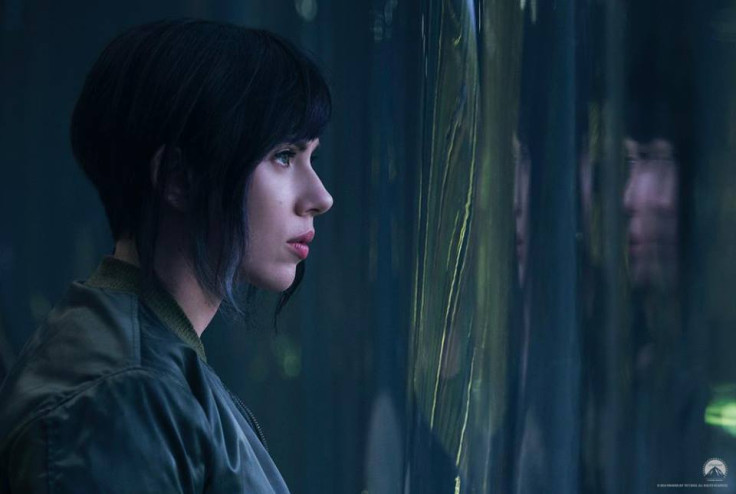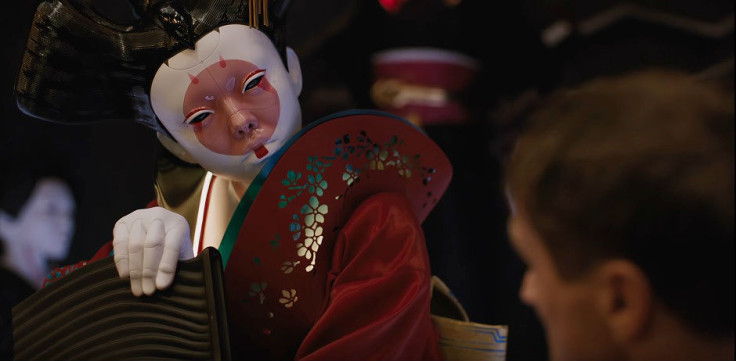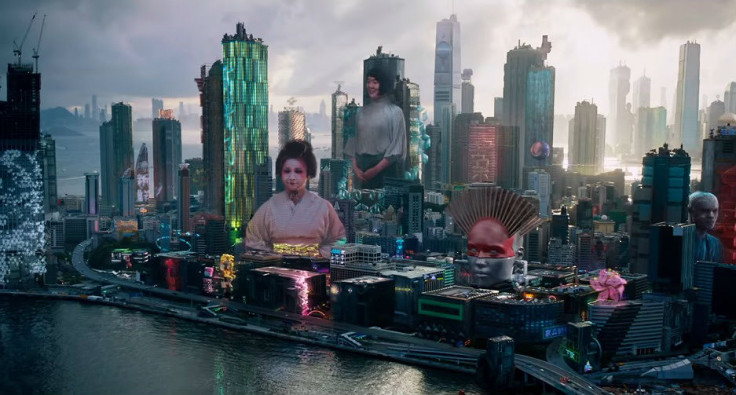Ghost in the Shell review: Scarlett Johansson's style-over-substance remake triumphs in its own way
Snow White and the Huntsman's Rupert Sanders builds on original's gorgeous aesthetics while story takes a backseat.

Published in 1989, Masamune Shirow's popular manga series The Ghost in the Shell asked profound questions about humanity's reliance on technology. In 1995, Mamoru Oshii's anime adaptation of the same name attempted to push such themes further, while also doubling down on the subject of identity and what it means to each of us. Now, director Rupert Sanders revisits a story that unnervingly doesn't all that far-fetched these days, 22 years on from when Shirow first conjured it up...
With previous Ghost in the Shell iterations being animation, sci-fi siren Scarlett Johansson is charged with portraying titular character Major here; a special-ops cyborg who works within an underground task force to take down dangerous online criminals. But she wasn't always the unique weapon she is now.
Fortunately, the film wastes no time in explaining how she came to be that way either. In its stunning opening sequence, Major – orphaned and badly injured as a young woman – was taken to Hanka, a robotics corporation which specialises in enhancing humans with cybernetic parts. With her body in unsalvageable condition, scientist Dr Ouelet (Juliette Binoche) had no choice but to merge Major's biological brain with a completely synthetic body and when Hanka found out that their "never-been-done" before experiment was successful, Major was drafted into Section 9.
One year on, Major is still coming to terms with what, or who, she is – an internal struggle made more difficult by increasingly persistent visions which Ouelet labels as "glitches". But when a super-powerful terrorist named Kuze (Michael Carmen Pitt) starts hacking people's minds and forcing them to violently off senior officials at Hanka, Major not only finds herself uniquely qualified to catch the killer but also, closer to her fragmented past than ever before.

For anyone who has seen the multitude of trailers and clips, it will come as no surprise to learn that Ghost in the Shell is visually gorgeous, as it conjures up a futuristic world resembling outings such as The Matrix and Blade Runner. Like the former, the style here trickles down from the sets to the characters too, as ornate kimonos and other aspects synonymous with more traditional Japanese culture co-exist seamlessly with grungy cyberpunk costumes and hair do's. (Seriously, the haircuts on display here are something to behold – from Pilou Asbæk's spiky white crop and Takeshi Kitano's Wolverine-homage to Johansson's blue-tinged raven locks).
Clint Mansell and Lorne Balfe's techno synth-filled score accompanies the muted action sequences just as beautifully. With all those accomplishments in mind, it's easy to admit that the aesthetic, characters and concept are all undeniably rich and intoxicating. So it's a shock then that Ghost in the Shell's screenplay ends up being, surprisingly, a little lacklustre. Its biggest slip-up? Its lack of a truly memorable baddie.
As so many thrillers do nowadays, Ghost in the Shell gets the audience to empathise with its villain. While it ultimately makes sense with the overall story line, Pitt's menace doesn't extend much past the first scene, meaning that most of the character's plights seem pointless and the stakes noticeably diminish. From then on, the film takes predictable turn-after-turn, leaving it devoid of any real mystery.
That's not to say Pitt isn't brilliant in the one scene he's really awarded though. In a relatively early confrontation with Major, Kuze reveals not only his sinister Frankenstein's Monster-like self; meshed-together robot parts and computerised voice, but his plans for his enemies too, in a shadowy, underground den of wires and water-puddles. It's a stand-out to say the least, and Pitt flexes both charisma and ominous presence with ease.
Of course, there is another baddie who rears their head later on but as there's no real time and effort put in to setting such a shift up, it results in a rather unsatisfying ending. It's obvious throughout that Sanders and co shot way more footage than what made it into the final cut, and even though it creates some pacing problems throughout, it's here you really feel the impact of the edit. How it ends should mean a little bit more, right? But there's something to be said of the fact that you walk away from the film desperately wishing you were able to see those discarded snippets...

There's no avoiding the accusations of whitewashing that have loomed over Ghost in the Shell since it was first announced. Those upset about Johansson's involvement are unlikely to feel differently once the credits roll, but there's something almost fitting about her in the lead role which is deeper than her being a Caucasian Hollywood star.
Her character here is lost and feels like she doesn't fit. She's a vessel, created to carry out certain missions. Her creators constantly tell her that she is human, while simultaneously marvelling at her cybernetic differences. It's evident that they see her as some sort of "thing" rather than a real person and the same could be said for Johansson as an actor, and the way her fans see her, too.
She's demonstrated her acting chops in Lost in Translation and Under the Skin. But simply put, when you're as famous as Johansson, and more significantly, when you look like she does, you become more a brand. Because of this, Johansson consistently has to prove that she has depth and is more than just an aesthetically pleasing poster-child. Even though she's already succeeded in doing so. (It doesn't take a genius to work out why one of her most acclaimed performances is in Spike Jonze's Her).
Suspend your disbelief, and it's easy to see that Major has both similar qualities and arc; they're both striving to be seen as individuals with purpose. If you can see past the Black Widow similarities, Johansson sells it too; her confused and inquisitive eyes shining out from her restrictive and rigid frame. It's just a shame that Ghost in the Shell doesn't quite offer her the material to shut down the naysayers once more. That being said, it comes bloody close.
© Copyright IBTimes 2024. All rights reserved.







